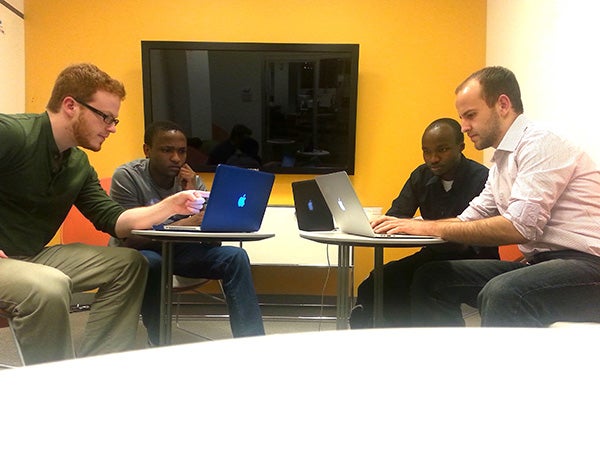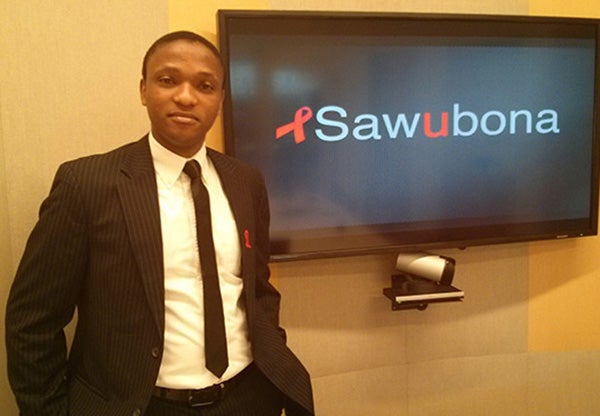Majahonkhe “Maja” M. Shabangu ’14 had never left his homeland or been on an airplane until he was accepted to Harvard.
“Coming to Harvard wasn’t so much a choice as it was a lifetime opportunity,” says Shabangu. “And I knew that to make the world a better place, I had to invest in my education and personal development.”
Financial aid made his journey from Mbabane, Swaziland, to Cambridge possible.
“I’m grateful for all that I was able to achieve through the financial aid program, which by the way, in my opinion, is simply the best there is,” says Shabangu.
Though initially homesick, Shabangu found Harvard to be “all I had dreamt of and more.” He immersed himself in campus life, living at Pforzheimer House, playing intramural soccer, and volunteering at an after-school program through the Phillips Brooks House.
His focus, however, was closely aligned with what was happening at home: the fight against HIV/AIDS. He concentrated in biomedical engineering and conducted research on the immunopathobiology of an HIV vaccine as an intern at the Le Gall Laboratory at the Ragon Institute of MGH, MIT, and Harvard. “I have a personal vendetta against HIV, and I felt that this was one of the most efficient ways I could fight back,” he says.
While working as a summer intern at a health clinic in South Africa he realized—along with fellow intern Nathan Georgette ’13—the possibility of expanding services for people with HIV/AIDS, beyond the personal phone calls they regularly made to patients to help them keep up with their medications.
He worked with Georgette and two other College students, Dario Sava ’13 and Roy Zhang ’13, to launch a software program that would send supportive text messages to clinic patients to remind them to take their medications. They entered the startup project in the Harvard College Innovation (I3) Challenge, a competition for Harvard entrepreneurs, and were granted $5,000 in seed funds. The startup has grown into the nonprofit Sawubona Health, launching two years ago in rural South Africa.
After graduation, Shabangu returned home to Swaziland where he continues to work with the team at Sawubona Health. Shabangu hopes to introduce the software to the region in the near future. “Swaziland has the highest prevalence of HIV in the world, but a relatively poor infrastructure for information technology,” says Shabangu.
In the meantime, he is working on a yearlong project to help provide food to orphaned and vulnerable children affected by HIV/AIDS in the community. “Working with Sawubona Health, I realized that while we were doing some good trying to reinitiate and keep HIV patients on antiretroviral therapy, we were not addressing some of the deep-seated issues behind poor treatment outcomes,” he says.
“It is my hope and my dream that we see the end of HIV in our lifetime,” he says. Shabangu’s future aspirations include working with Doctors Without Borders, earning a graduate degree in public health, and eventually joining the health ministry of Swaziland.
Shabangu encourages other Harvard graduates to give something back. “Education is too valuable a gift to keep for oneself,” he says. “So much has been invested in my education, and so I feel that I have to do more for others.”

